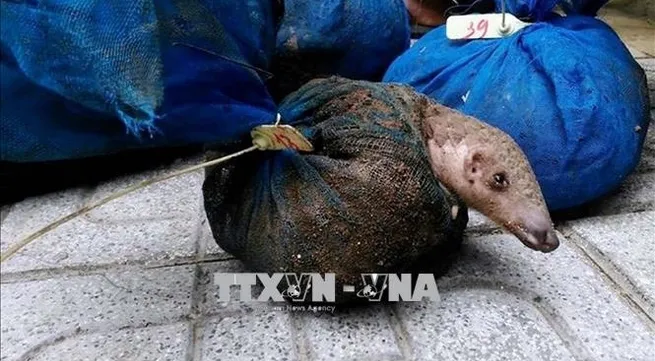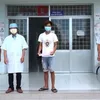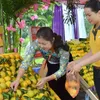Six known coronaviruses found in wildlife in Vietnam

The research has been published on bioRxiv by a team of scientists from the Wildlife Conservation Society (WCS), Department of Animal Health under the Vietnamese Ministry of Agriculture and Rural Development, Vietnam National University of Agriculture, EcoHealth Alliance and One Health Institute under the University of California, Davis.
Findings from the study showed that, at nodes along the supply chain, wildlife is often stressed and kept in cramped conditions with other animals imported from many sources, which increases the possibility of coronavirus transmission. The authors also warned of the risk of animal-to-human virus transmission during wildlife trade.
The researchers said that stress and poor nutrition likely contributes to shedding by reducing animal health conditions and altering immune functions. Together, these factors may result in increased shedding and amplification of coronaviruses along the supply chain for human consumption.
Research on rodents also indicates the risk of spreading coronaviruses to other wildlife (civets, pangolins) in places where large numbers of animals are collected, transported and kept.
The purpose of this study is to better understand the existence and diversity of coronaviruses in wildlife in three areas of human-wildlife contact, including at the links in live wildlife trade, wildlife farms, and areas with a high interaction between people and bats.
The research team collected samples from 70 locations across Vietnam and discovered six known coronaviruses. Although there is currently no evidence that these viruses are a threat to human health, this study enhances surveillance capacity in the direction of the One Health approach of Vietnam to detect important emerging or unknown viruses in humans, wildlife and livestock in the future.
The research shows a high positive rate for coronaviruses in rats destined for human consumption. The positive rate increased significantly along the supply chain from traders (21%), to markets (32%) and restaurants (56%). Two-thirds of wildlife farms and 6% of rodents raised on farms within the study sites also showed positive coronavirus results.
Specimens of rodent dung on wildlife farms also showed the presence of the same coronaviruses found in bats and birds, suggesting a shared habitat and/or viral spread among wildlife. Samples from rodents taken from natural habitats gave corona virus results in the range of 0-2%.
Amanda Fine, Director of WCS's Asia Wildlife Program, one of the co-authors of the study, said: “Wildlife supply chains, and the conditions the animals experience while in the supply chain, appear to greatly amplify the prevalence of coronaviruses. In addition, we have recorded exposure to coronaviruses from bats and birds among rodents raised on farms.”
The prevalence and diversity of coronaviruses, in addition to the general captivity of many animals observed in wildlife trade, is creating opportunities for coronavirus strains to combine and spread, she added.
The authors have warned that the trade in wildlife facilitates close contact between people and multiple species of wildlife taxa shedding coronaviruses. This provides opportunities for intra- and inter-species transmission and potential recombination of coronaviruses.
The wildlife supply chain from the field to the restaurant provides multiple opportunities for such spillover events to occur. To minimise the public health risks of viral disease emergence from wildlife and to safeguard livestock-based production systems, the authors recommend precautionary measures that restrict the killing, commercial breeding, transport, buying, selling, storage, processing, and consumption of wild animals.
Hoang Bich Thuy, WCS Vietnam Country Program Director and co-author, said: “Since the outbreak of COVID-19, the Government of Vietnam has been taking strong actions to enforce wildlife trade laws and is considering the prohibition of wildlife trade and consumption as directed by the Prime Minister in his Official Letter No. 1744/VPCP-KGVX dated March 6, 2020, from the Government Office.”
According to Thuy, this research provides important baseline information and suggests areas for targeted studies to provide more evidence for the development of new policies and/or revision of the legal framework in Vietnam to prevent future pandemics by mitigating the risks of transmitting pathogens from animals to humans at key nodes along the wildlife supply chain.
Successful interventions will be those that support a significant reduction in the volume and diversity of species traded, along with the number of people involved in the trade of wildlife, Thuy suggested.





